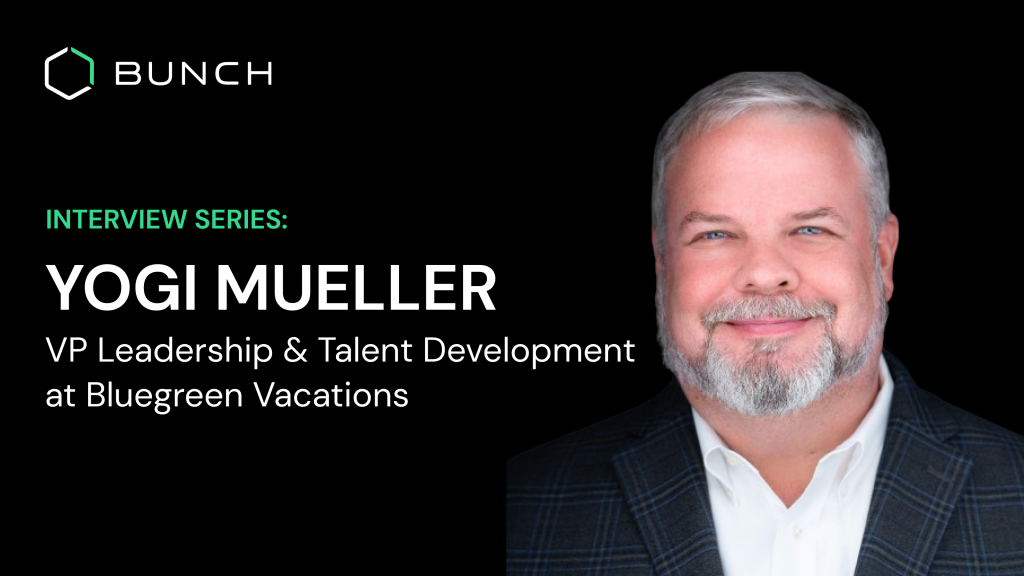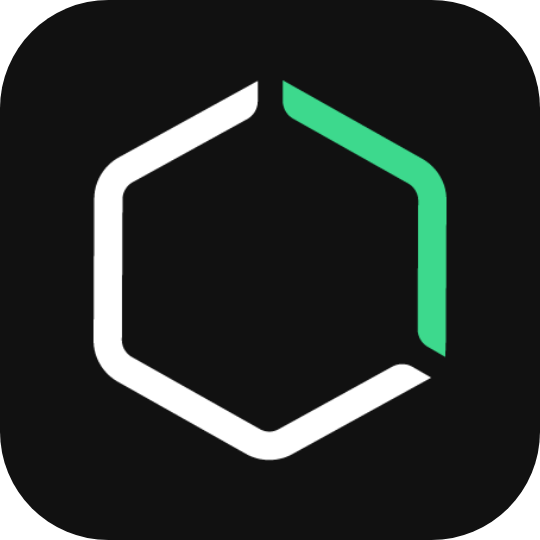
I see potential in using AI to extend the reach of leadership development and craft more personalized learning paths.
Yogi Mueller
In this edition of our new Leadership Development Interview Series, we sat down with Yogi Mueller, VP of Leadership & Talent Management for Bluegreen Vacations. During the conversation, Yogi shared insights from many years as an educator, including his take on the tensions in catering to time-strapped leaders while also ensuring high impact initiatives, and gap in mentorship for aspiring leaders today. He also gave us his take on the power & promise of AI in developing individual development plans.
Can you tell us a bit about yourself and your current role?
My name is Yogi Mueller, and I’m the Vice President of Leadership and Talent Management for Bluegreen Vacations. I have over 30 years of experience in the hospitality and entertainment field, having worked for companies like the Walt Disney Company and Travel Leaders. I’ve also been involved in education, teaching at various levels from grad school to middle school.
What does leadership mean to you, and which skills do people need to succeed as a leader?
Leadership, to me, is rooted in service and support for growing others. It’s about putting others’ needs ahead of your own, especially in the hospitality industry. Leadership should be focused on the impact you have on others, not on titles or trappings. A key aspect of being a leader is managing and supporting people, and this should be at the core of one’s motivations to lead.
What does leadership development look like at your company? Which tools and programs do you have in place, and how do you currently select new leadership talent to develop?
Our leadership development focuses on what we call the ‘Career Accelerator Series’, where we look at an individual’s career arc and identify steps to bridge gaps between positions. This approach isn’t topic-focused but rather tailored to the individual’s career path. We use various tools and software to support this, but our main focus is on crafting personalized plans to help individuals progress from one role to the next. This method ensures we have a ready talent bench for higher roles.
What are some current challenges with leadership development overall in your company? What are hard parts about developing leaders?
One challenge is measuring the impact of learning and development in an organization. It’s difficult to attribute success to L&D efforts alone due to various influencing factors. Additionally, if the organization or leaders don’t understand or value L&D, much time must be spent educating them on its importance.
Another challenge is the lack of mentorship for young people, who often go through significant portions of their career without guidance or affirmation of their potential. This generation of young professionals have never really experienced having a real mentor.
One major pain point is the shrinking attention span of people. There’s a trend towards micro-learning and targeted learning, but real paradigm shifting and culture change can’t be achieved only in bite-sized snippets. It also requires some hands-on, personal involvement.
So we’re facing the challenge of balancing this micro-learning approach with the need for more immersive, impactful learning experiences. This tension is significant because true growth and mentorship happen in challenging environments, not just through easily digestible content. You have to do a bit of hard work yourself to truly make a breakthrough.
Have you considered using AI tools in developing the future generation of leaders?
While I haven’t had extensive experience with AI for leadership development, we have explored AI chatbots for resource guidance and identifying development gaps. I do see potential in using AI as a tool to extend our reach in leadership development.
Tell us more! What applications of AI seem most promising to you from a leadership development standpoint?
I think AI could also be invaluable in providing frameworks for individual development plans, aiding in crafting more personalized learning paths. For example, individuals could do a self-assessment and AI could help identify gaps and suggest resources, acting as a complement to human-led mentorship and training.
AI would be particularly useful in organizations with limited L&D resources, enabling more personalized guidance at scale.
However, AI shouldn’t replace the human element in leadership development, which is essential for truly impactful growth.
To learn from more experts on how to grow leaders at your company, check out our full list of interviews here.
If you’re looking to grow future leaders at your own company, get in touch to see how Bunch can enable you to give every person in your company an individualized, continuous development journey for every aspiring leader.





